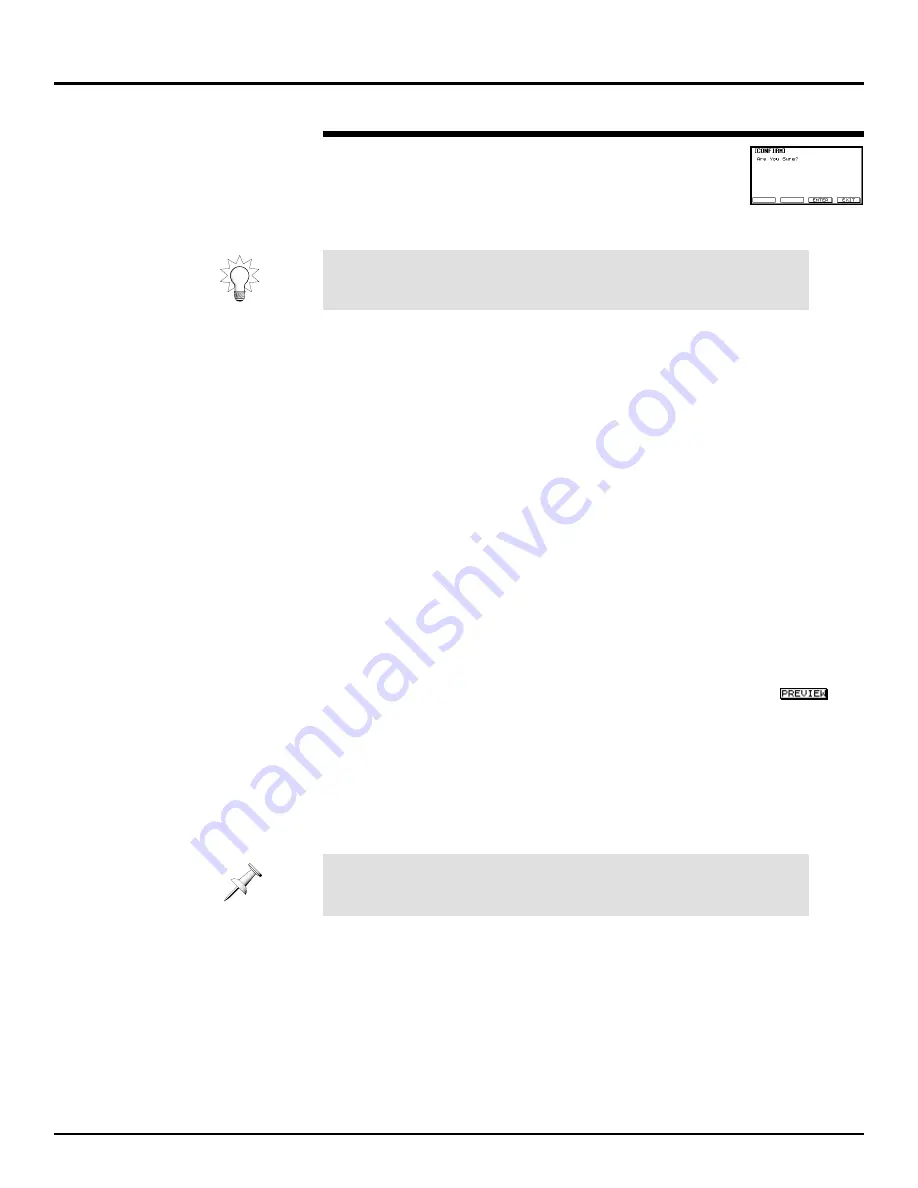
5.
Press F3 [SAVE]. The VM-7000 prepares to save the
current effect in the selected location and asks “Are You
Sure?”
6.
We are, so press F5 [ENTER] to finish saving My First FX.
7.
Press F6 [EXIT] to leave Effect 1’s library screen.
Before proceeding, we need to make sure Effect 1’s return is being sent
into the main mix so that we can hear Effect 1 in the next section:
1.
Press Flex Bus Channel 1’s (AUDIO) STATUS button so that it lights
in green. You should now be hearing your mic through My First FX.
Previewing Other Effect Libraries
There’s one last thing we should check out before moving on to insert
effects. Once you’ve set up a send-and-return effect and have sent
some signals through it—and can therefore hear what it sounds like—
you may want to try out different effect libraries to hear how they sound.
Here’s how to do this with Effect 1:
1.
Press F1 [LIBRARY].
Let’s try out some of the factory preset effect libraries.
2.
Turn V1 [SELECT GROUP] to select P000: Reverb.
3.
Turn V2 [SELECT NUMBER] to select P011: Vocal Multi.
The VM-7000 allows you to temporarily load an effect library to try it
out. The effect remains audible for only as long as the PREVIEW
switch is turned on. You can turn it off manually to stop auditioning a
library, or simply select a different library—as soon as you do, the
PREVIEW switch is automatically disengaged.
4.
Press F1 [PREVIEW] and make some noise into the mic to
hear what Vocal Multi sounds like.
5.
Turn V2 [SELECT NUMBER] to select P062:RV:ReverseGt. Note
that the PREVIEW switch has been turned off. Press F1 [PREVIEW]
to try out this “reverse gated reverb.”
6.
When you’re done listening to ReverseGt, press F1 [PREVIEW] to
turn PREVIEW off manually.
7.
Try out any of the other libraries that interest you. You can try out as
many libraries as you like.
Remember that using the PREVIEW switch only temporarily installs the
selected library. If you want to actually load the library, you must press
F2 [CP/LOAD], though you needn’t do that now.
Before proceeding, press F6 [EXIT] and LEVEL METER to leave the
library screen and go back “home.”
©
2000 Roland Corporation U.S.
Getting Started with the VM-7000
2796US, v1.0
Page 38
Setting Up a Send-and-Return Effect (Continued)
®ÂØÒňÎ
Application Guide
Getting Started with the VM-7000
Not all libraries are meant for use as send-and-return effects. Some of
them are provided as insert-type effects. As a result, some libraries may
not sound like much as you try them out right now.
You can store your user libraries on a memory card, re-loading them
whenever you need them, or even into another VM-7000 system. We’ll
discuss this later on.






























